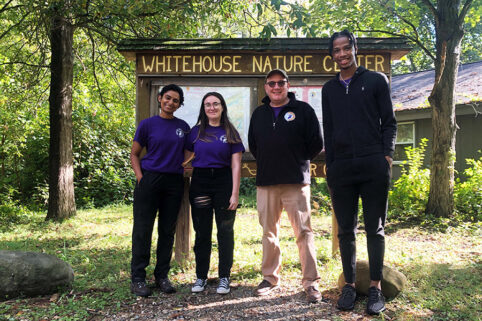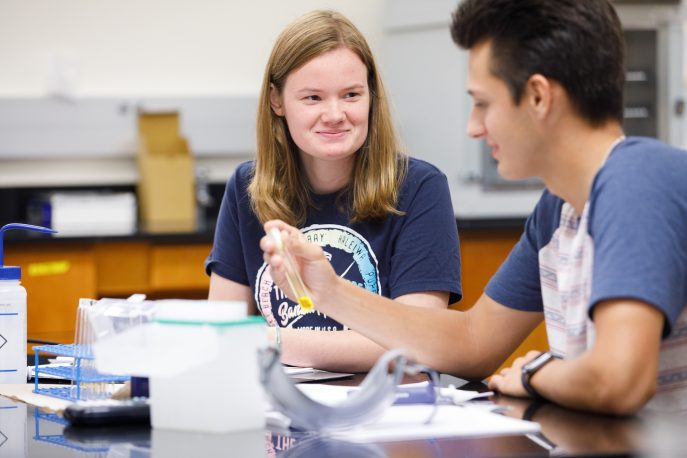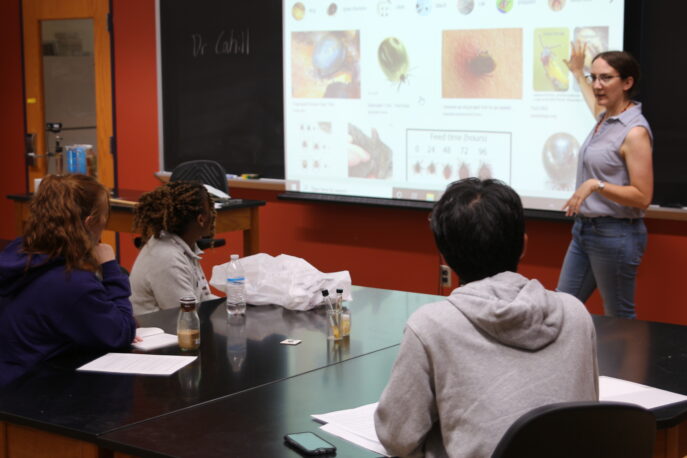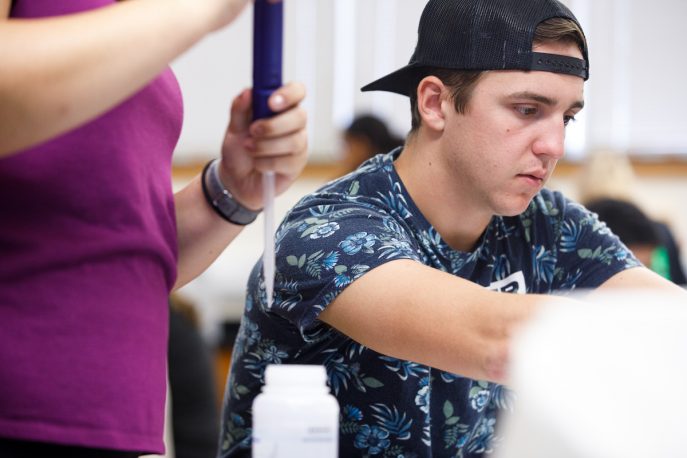Biology
Study the fundamental relationships and mechanisms that tie all life on Earth together.
Examine living organisms, their origins and how they have evolved over time. Actively learn scientific methods by asking questions, formulating hypotheses, conducting experiments, analyzing data, and effectively communicating ideas in oral and written formats. Pursue independent research, test your ideas through fieldwork–including in our 135-acre Whitehouse Nature Center–and experiment in our state-of-the-art labs.
If you have a passion for problem-solving, strong attention to detail, and a love of nature and science, the study of biology opens the door to many career possibilities. Branch into groundbreaking research specialties like bioinformatics and genomics. Or combine your love of science and relationship-building to become a health communications specialist or pharmaceutical sales representative.
The close ties you’ll make with our faculty will lead you to what’s next, whether it’s a career in medicine, natural resources, or any number of health or science fields.
Biology Courses
In our courses, you’ll build a knowledge base in fundamental areas of biology: ecology, evolution and biodiversity, cell and molecular biology, and genetics. Explore courses offered by our department and courses accepted for transfer credit.

Whitehouse Nature Center
Welcome to the greenest classroom on campus! It’s also the only one with a river running through it. And five miles of trails and more than 400 plant species.
You’ll explore acres of hickory and floodplain forests as you search for one of 170 species of birds.
The Whitehouse Nature Center is 140 acres’ worth of outdoor education, and it comes complete with a visitors’ center that houses a classroom, wildlife observation room, and live exhibits of local reptiles and amphibians.
Whitehouse Nature Center

